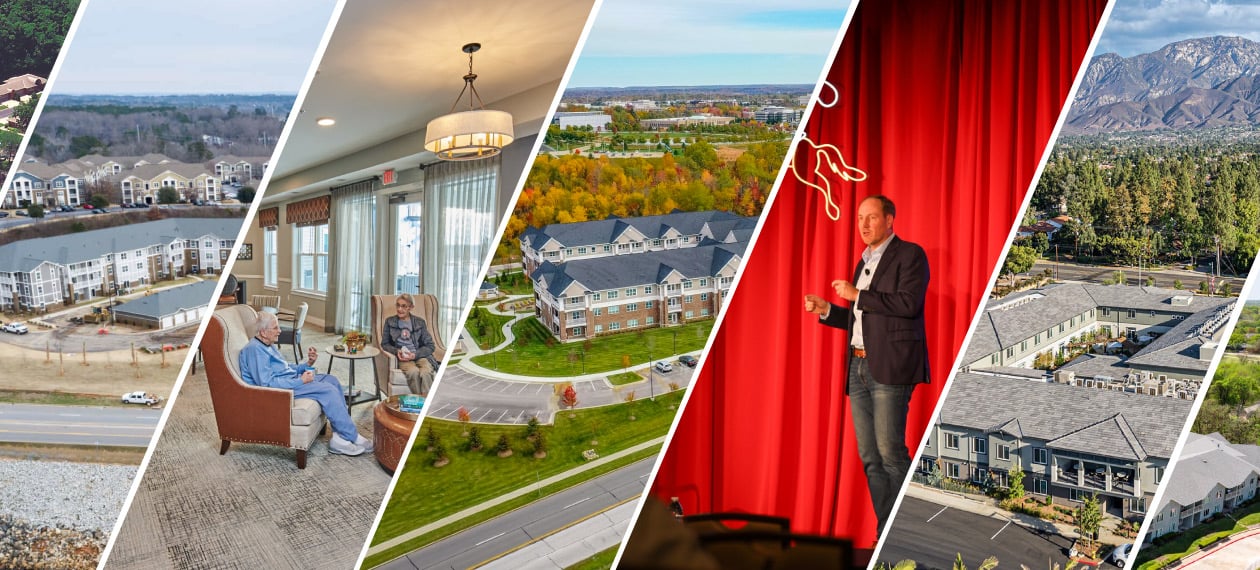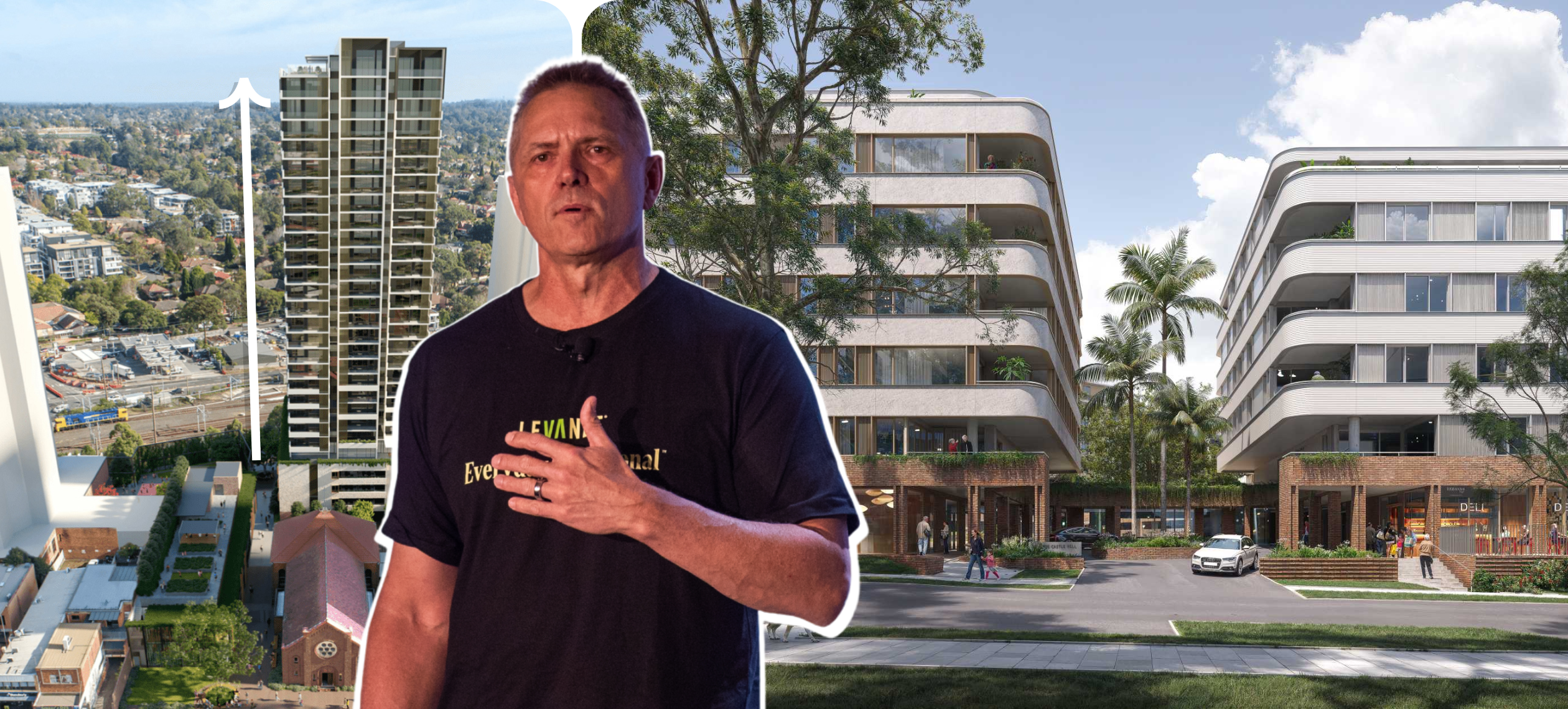When longevity expert Ryan Frederick, Founder & CEO of Here, argues that place is essential to a healthy life, he doesn’t just mean physical location. His conceptualization of place is more holistic: it encompasses community, social connection, and the ability to do what makes you happy and fulfilled. As life expectancies have increased, he believes finding the right place has become essential to healthy longevity.
This presents a valuable opportunity for the senior living industry. As people live longer, they spend more time in retirement. This means that where they spend their retirement is a hugely consequential decision. With research suggesting that loneliness and disconnection are on the rise, senior living providers can differentiate themselves by providing the sense of community and purpose that so many people are missing.
In a recent conversation at SLIF Spring in Austin, Texas, Frederick discussed how the industry can rise to this challenge.
Telling the Right Story
As Frederick works with providers, one of his top priorities is helping them tell their story in a way that connects more powerfully with their customers’ needs. That means communicating their product’s true value proposition, which isn’t just in its amenities and activities, but in the sense of meaning it offers. “If the conversation in the leasing or sales center goes directly to services, goes directly to granite countertops in the kitchen, we're missing them,” he said.
To better reach consumers, providers must also answer the existential question that prospects may not even know they’re asking: Where should I be? “Not everyone’s going to say, ‘I want to make your place my place,’” Frederick explained. “But if we don't even have that conversation, we lose the opportunity to create this special connection.”
Building that connection requires a “fundamental empathy” for senior living’s prospective customers: people undergoing a monumental transition into the next chapter of their lives. Some may feel a deep-seated fear of change; some may also lack purpose in their lives, leaving them uncertain where to go next. “They may be socially disconnected, but that doesn't necessarily mean that they're running to senior living, particularly if senior living doesn't speak their language,” Frederick said. For the industry to earn their trust, it needs to speak to that fear and offer a sense of purpose.
Using the Right Language
As Frederick ponders how to reach the next generation of senior living customers, he’s come to the conclusion that the industry needs to rethink some of the language it uses. Words are the building blocks of stories, and a good story needs the right words.
One term he thinks the industry should leave behind is “resident,” which he views as hopelessly hollow. “Resident is derivative of reside; reside is to just be there, not necessarily be present, anchored, rooted,” he explained. “When you use words like resident, it can be deflating, it can take agency away.” He prefers a word suggested by Jill Vitale-Aussem, President and CEO of Christian Living Communities: citizen. It’s a term that evokes rights and opportunity, a sense of belonging absent from the industry’s conventional narrative.
Frederick is similarly unenthused by “engagement,” arguing that it fails to capture the heart of what senior living offers: the keys to the rest of your life. “That doesn’t lend itself to a static activity calendar, which is offered up by the activity coordinator,” he said. “What if you flip this upside-down and say, ‘Hey, what do you want your life to look like? How can we give you the keys? In what ways can we empower you to create your neighborhood, cultivate your sense of purpose?’”
Another problem word: “operator,” a clinical term that similarly diminishes senior living’s power to create meaning in people’s lives. “You are so much more than an operator,” he said. “There are huge elements of community building, of empowering people around what it looks like to have this life worth living.”
He’s not quite sure what the proper term is, but he doubts it’s provider either. “Provider is too limited,” he argued. “Your ability is to create — not necessarily impose — this sense of community, opportunities for belonging. Our society's thirsting for this.”
Designing for Community
As providers — or whatever we end up calling them — chart their futures, Frederick advises them to strategize consciously and constantly. “Strategy is no longer something we kind of do,” he said. “You need to be doing it all the time.”
The assumptions guiding the industry’s 10-15 years of decision-making are no longer reliable, Frederick argued, leaving decision-makers in a state of perpetual uncertainty. For instance, despite years of predictions that the Boomers are coming, they haven’t quite arrived yet. “We just can't assume that we get the same capture rate of people living longer,” he said. “We have to work hard to earn that capture rate. Doing things the way we’ve been doing them is not inherently the right thing; you may not get those same results you had in the past.”
He also cautioned industry leaders to think carefully about the shape of their businesses. Consolidation has benefits for operators and customers alike, but bigger companies are necessarily less nimble, and segmentation leaves little room for error. “When you segment, your market gets smaller,” Frederick said. “If you're gonna segment and have a brand around a certain segmentation, you better nail that segment.”
In closing, Frederick expressed his hope for providers to design their communities not only for physical and operational efficiency, but also for community and human connection. “Leaders have the opportunity for more people to see that their place is the right place at the right time for more consumers,” he concluded.
The differentiated opportunity ahead for senior living organizations may be simply to double down on all that “place” can offer. To do so may help more people live not just longer lives, but better ones, too.

Posted by
SLIF heads to Carlsbad!
The One of a Kind Retreat for Senior Housing Leaders.
May 31 - June 2, 2026 | Carlsbad, CA
Learn More









Comments